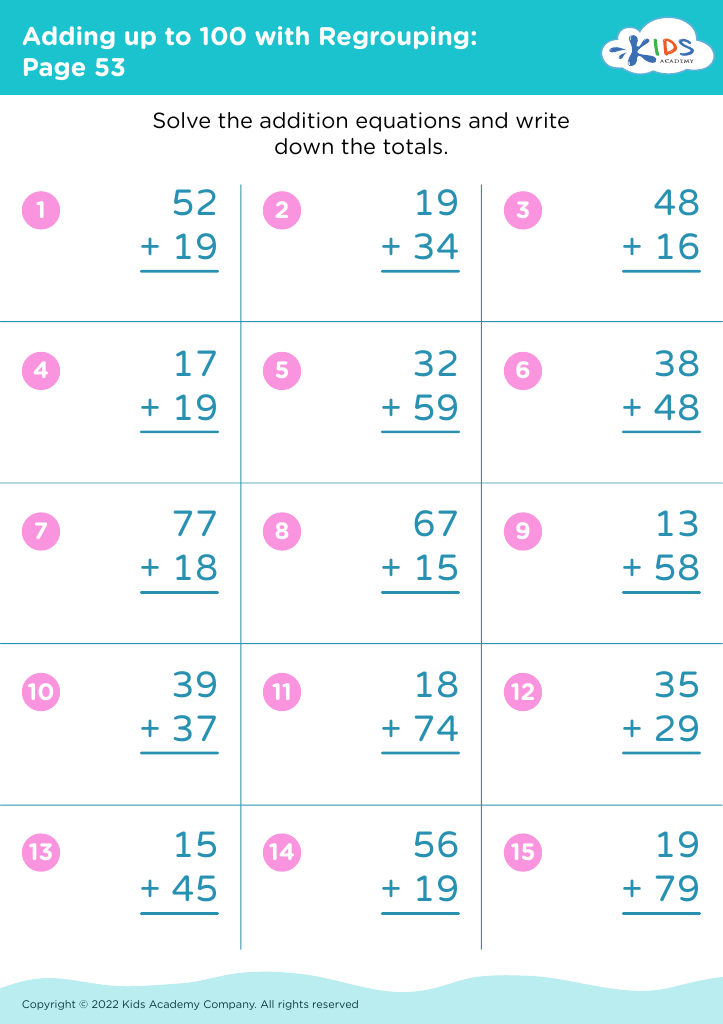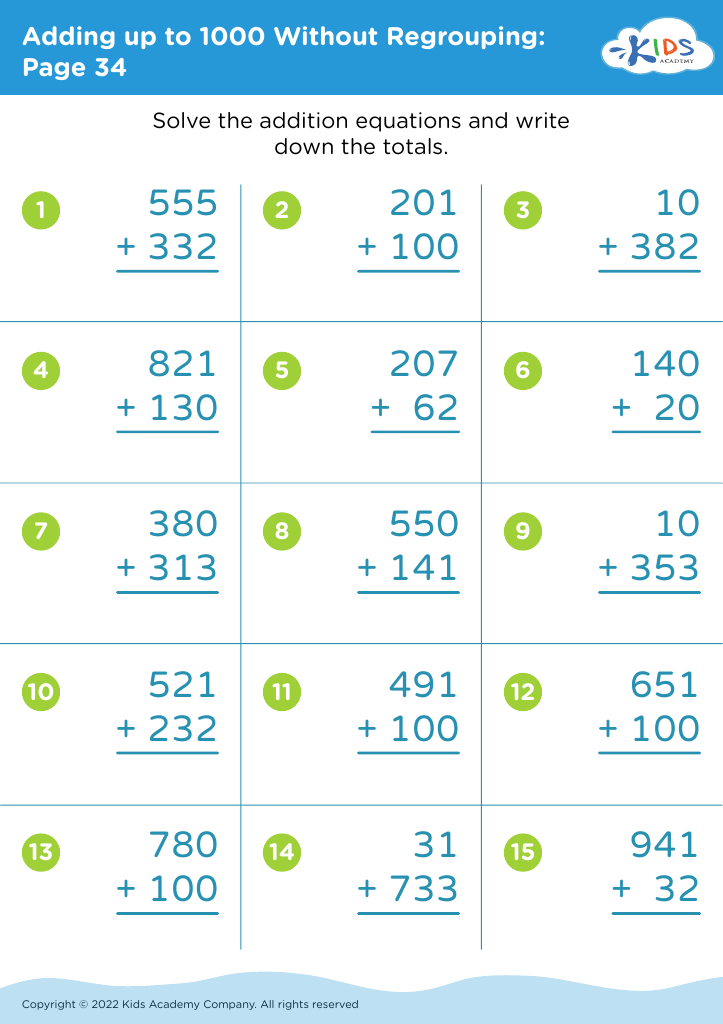Improve problem-solving Addition Worksheets for Ages 4-9
4 filtered results
-
From - To
Enhance your child's problem-solving skills with our dynamic addition worksheets designed for ages 4-9. At Kids Academy, we offer engaging activities that make learning math fun and effective. Our printable worksheets cater to different skill levels, helping children develop their addition proficiency through interactive problems that spark their curiosity. Whether your child is just starting their math journey or looking to master addition, these worksheets provide the perfect practice. Tailored to promote critical thinking and boost confidence, our resources lay a solid foundation for future math success. Explore our worksheets today and watch your child's problem-solving abilities flourish!
Improving problem-solving skills in addition for children ages 4-9 is crucial as it lays the foundation for their overall mathematical development and cognitive growth. At this formative age, children are like sponges, rapidly absorbing new information and skills. Mastery of basic addition not only enhances their ability to handle more complex mathematical problems later but also boosts their confidence and fosters a positive attitude toward mathematics.
Problem-solving skills, in particular, teach children how to approach challenges systematically and think critically. By practicing addition through problem-solving, children learn to identify relevant information, develop strategies, and verify their solutions. These mental exercises enhance their logical reasoning and analytical thinking capabilities which are essential, not just in math, but across all areas of learning.
For parents and teachers, focusing on this area ensures that children are not merely rote memorizing numbers, but comprehending underlying concepts. This comprehension leads to a more profound and long-lasting understanding that will benefit them academically and in real-world scenarios where math is applicable, such as shopping or planning.
Ultimately, developing these skills at an early age can set children on a trajectory of academic success, making the importance of nurturing problem-solving addition undeniable for any caregiver or educator.





















